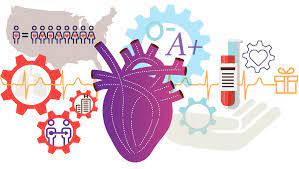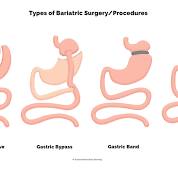
Transforming Lives: The Life-Saving Impact of Organ Transplant Services
Organ Transplant Services: Saving Lives and Restoring Hope
Organ transplantation has revolutionized modern medicine, offering a lifeline to individuals suffering from end-stage organ failure. This remarkable medical procedure involves the replacement of a damaged or non-functioning organ with a healthy organ from a deceased or living donor. Organ transplant services have not only saved countless lives but have also restored hope to patients and their families.
Organ transplants can be performed for various organs, including the heart, lungs, liver, kidneys, pancreas, and intestines. Each transplant procedure requires meticulous planning, skilled surgeons, and a well-coordinated healthcare team to ensure its success.
The Gift of Life: Organ Donation
The foundation of organ transplantation lies in the generosity of organ donors and their families. Deceased donors can provide organs that are carefully matched with recipients based on factors such as blood type, tissue compatibility, and medical urgency. These selfless acts allow individuals in dire need to receive a second chance at life.
In addition to deceased donors, living donors also play a crucial role in organ transplantation. Living donor transplants are commonly performed for organs such as kidneys and partial liver donations. The ability to receive an organ from a living donor not only increases the chances of success but also reduces waiting times for patients.
The Transplant Process: A Complex Journey
The journey towards an organ transplant involves several stages:
- Evaluation: Potential recipients undergo comprehensive medical evaluations to determine their suitability for transplantation. Factors such as overall health, severity of illness, and psychological readiness are assessed.
- Waiting List: Once deemed eligible for transplantation, patients are placed on national or regional waiting lists managed by specialized organizations. The waiting time for an organ can vary depending on factors such as organ availability, medical urgency, and compatibility.
- Matching: When an organ becomes available, a meticulous matching process takes place to ensure compatibility between the donor and recipient. Blood type, tissue compatibility, and other medical factors are carefully considered to maximize the chances of a successful transplant.
- Surgery: The transplant surgery is a complex procedure that requires highly skilled surgeons and a dedicated surgical team. The damaged organ is removed, and the healthy donor organ is transplanted into the recipient’s body. Post-surgery care is critical to monitor the patient’s progress and prevent complications.
- Recovery and Aftercare: Following the transplant surgery, patients require ongoing care to ensure proper healing, prevent rejection of the new organ, and manage any potential complications. Regular follow-up visits with healthcare professionals are necessary to monitor the patient’s progress and adjust medications as needed.
The Impact: Restoring Hope and Transforming Lives
The impact of organ transplant services extends far beyond medical statistics. For recipients, it offers a renewed lease on life—a chance to regain independence, pursue dreams, and spend precious moments with loved ones. Families are given hope as they witness their loved ones recover from debilitating illnesses that once seemed insurmountable.
Organ transplantation not only saves lives but also reduces healthcare costs associated with long-term treatments for chronic organ failure. It frees individuals from the burdens of dialysis or other temporary measures while providing them with improved quality of life.
A Global Effort towards Life-Saving Transplants
Organ transplant services require collaboration among healthcare professionals, researchers, policymakers, and society as a whole. Efforts to increase awareness about organ donation, streamline transplant processes, and improve post-transplant care are ongoing.
Medical advancements, such as improved surgical techniques and the development of immunosuppressive medications, have significantly enhanced the success rates of organ transplants. However, challenges such as organ shortages and the risk of rejection remain areas of focus for ongoing research and innovation.
Organ transplantation represents the triumph of medical expertise, compassion, and human generosity. It offers a beacon of hope to those in need and showcases the remarkable achievements that can be accomplished through collaboration and dedication.
8 Essential Tips for Navigating Organ Transplant Services Successfully
- Research reputable transplant centers for the specific organ you need.
- Consult with multiple transplant specialists to get different opinions and options.
- Understand the risks, benefits, and long-term implications of organ transplantation.
- Follow a healthy lifestyle before and after the transplant to improve success rates.
- Stay informed about the organ donation process and register as an organ donor if possible.
- Build a support network of family, friends, or support groups during the transplant journey.
- Adhere strictly to post-transplant medication schedules and follow-up appointments.
- Seek emotional support from mental health professionals to cope with the challenges.
Research reputable transplant centers for the specific organ you need.
When considering organ transplant services, it is essential to conduct thorough research to identify reputable transplant centers that specialize in the specific organ you require. Each organ transplant has its unique complexities and intricacies, and finding a center with expertise and experience in your specific organ can significantly increase the chances of a successful transplant. Look for centers that have a proven track record of performing successful transplants, possess state-of-the-art facilities, and employ skilled healthcare professionals who are well-versed in the latest advancements in transplantation. By focusing your search on reputable transplant centers, you can ensure that you receive the highest quality care and maximize the potential for a positive outcome on your journey towards restoring your health.
Consult with multiple transplant specialists to get different opinions and options.
When considering organ transplant services, it is highly recommended to consult with multiple transplant specialists to gain different opinions and explore various options. Each specialist brings their unique expertise and perspective, which can provide valuable insights into your specific case. By seeking multiple opinions, you can ensure that you have a comprehensive understanding of the available treatment options, potential risks, and expected outcomes. This approach allows you to make a well-informed decision about the best course of action for your organ transplant journey, giving you confidence in your chosen path towards restored health and improved quality of life.
Understand the risks, benefits, and long-term implications of organ transplantation.
When considering organ transplantation, it is essential to thoroughly understand the risks, benefits, and long-term implications associated with the procedure. While organ transplantation can be a life-saving intervention, it is not without potential risks. Patients must be aware of the possible complications, such as organ rejection, infection, and side effects of immunosuppressive medications. On the other hand, understanding the benefits can provide hope and reassurance, as organ transplantation offers the opportunity for improved quality of life and increased longevity. Additionally, it is crucial to comprehend the long-term implications of receiving a transplanted organ, including the need for lifelong medical follow-up and adherence to medication regimens. By having a comprehensive understanding of these factors, patients can make informed decisions about their healthcare journey and prepare for the challenges and rewards that come with organ transplantation.
Follow a healthy lifestyle before and after the transplant to improve success rates.
Following a healthy lifestyle before and after an organ transplant is crucial for improving success rates and ensuring long-term well-being. Prior to the transplant, adopting healthy habits such as maintaining a balanced diet, engaging in regular exercise, and avoiding harmful substances can help optimize the recipient’s overall health, making them better prepared for the procedure. After the transplant, adhering to a healthy lifestyle becomes even more important to support the body’s healing process and prevent complications. This includes taking prescribed medications as directed, attending follow-up appointments, maintaining a nutritious diet, staying physically active within recommended limits, managing stress levels, and avoiding behaviors that may jeopardize the transplanted organ. By prioritizing a healthy lifestyle both pre- and post-transplant, individuals can greatly enhance their chances of a successful recovery and enjoy a better quality of life moving forward.
Stay informed about the organ donation process and register as an organ donor if possible.
Staying informed about the organ donation process is crucial for individuals who wish to make a difference in the lives of others. By understanding how organ donation works and the impact it can have, we can actively contribute to saving lives. Registering as an organ donor, if possible, is a powerful way to express our willingness to help others even after our own passing. It is a selfless act that can provide hope and a second chance at life for those in need. By staying informed and registering as an organ donor, we can make a meaningful impact and leave behind a lasting legacy of compassion and generosity.
Build a support network of family, friends, or support groups during the transplant journey.
Building a support network of family, friends, or support groups during the organ transplant journey is essential for patients and their loved ones. The process of undergoing an organ transplant can be physically and emotionally challenging, and having a strong support system can provide much-needed comfort, encouragement, and understanding. Family members and close friends can offer practical help with daily tasks, provide emotional support during difficult moments, and serve as advocates in navigating the healthcare system. Support groups consisting of individuals who have gone through similar experiences can offer a unique level of empathy and shared knowledge. Together, this network can provide a sense of belonging, reassurance, and motivation throughout the transplant journey.
Adhere strictly to post-transplant medication schedules and follow-up appointments.
Adhering strictly to post-transplant medication schedules and follow-up appointments is crucial for the success of organ transplant services. After receiving a new organ, patients need to take immunosuppressive medications as prescribed to prevent rejection and ensure the long-term viability of the transplant. These medications suppress the immune system, allowing the body to accept the new organ without attacking it. Skipping doses or altering medication schedules can increase the risk of rejection and compromise the overall health of the recipient. Additionally, regular follow-up appointments with healthcare professionals are essential to monitor the patient’s progress, detect any potential complications early on, and make necessary adjustments to medication or treatment plans. By diligently adhering to these post-transplant protocols, patients can maximize their chances of a successful transplant and enjoy a healthier, longer life with their new organ.
Seek emotional support from mental health professionals to cope with the challenges.
Undergoing an organ transplant can be an emotionally challenging journey, not only for the patient but also for their loved ones. Seeking emotional support from mental health professionals can play a crucial role in coping with the unique challenges that arise during this process. These professionals are trained to provide guidance, counseling, and coping strategies to help individuals navigate the emotional rollercoaster associated with organ transplantation. By addressing fears, anxiety, and stress, mental health professionals can offer valuable support to patients and their families, promoting overall well-being and resilience throughout the transplant journey.


